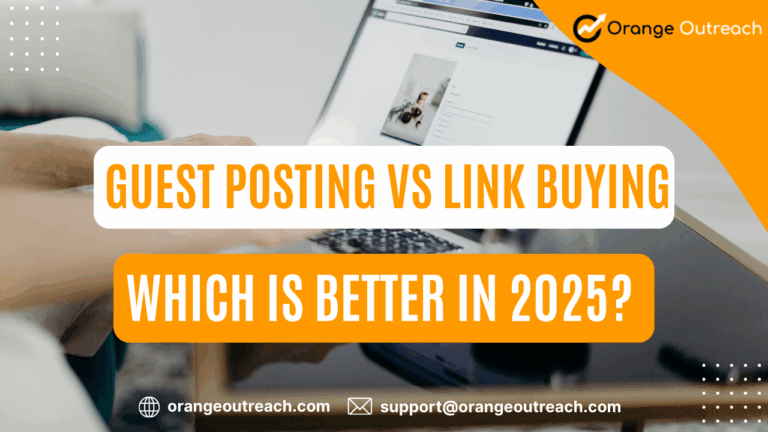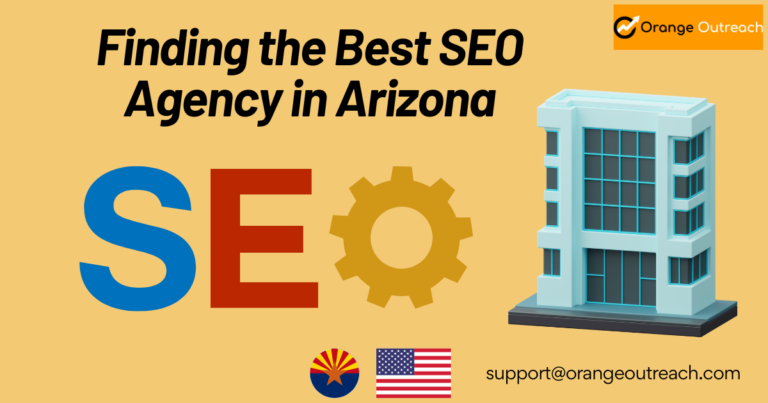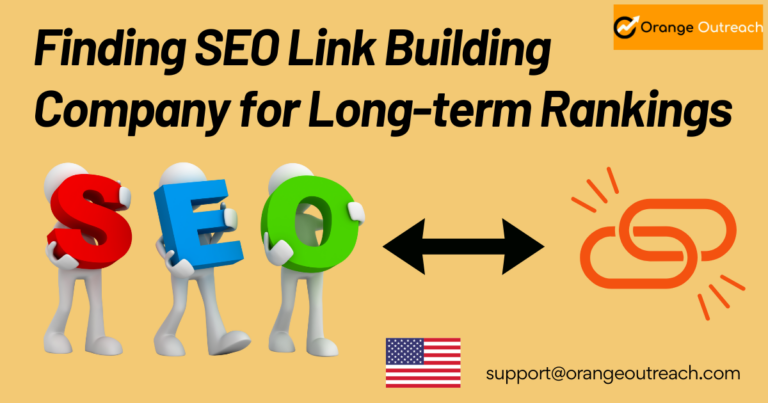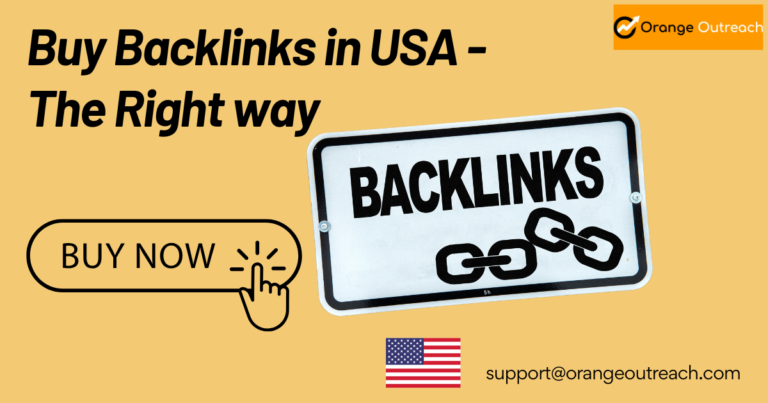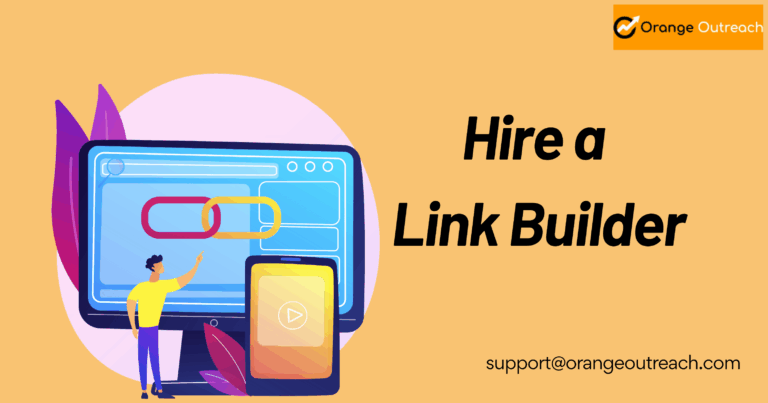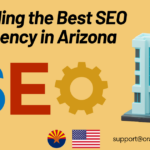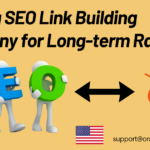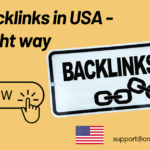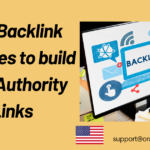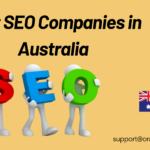SEO is a key part of marketing strategies today, and it stands for Search Engine Optimization. It’s a technique used by many marketing firms to improve a website’s ranking on search engines like Google. In the early 2000s, when the internet was in its infancy, SEO mostly focused on optimizing meta tags. Over time, SEO has evolved to include strategies like guest posting and link building.
As a business owner, you may be looking for the best strategies to help your business gain visibility and growth. Look no further. In this article, we will discuss two of the most commonly used digital marketing strategies today, guest posting and link building, their advantages and disadvantages, differences, and how to choose the best option for your case.
What is Guest Posting?
Guest posting is a digital marketing strategy used by content writers, where they write blogs on niche topics targeted at specific blogs. This helps them reach new audiences and improve visibility for their brand. In this practice, marketers commonly target
The SEO Landscape in 2025: Quality Over Everything
Google’s algorithms in 2025 are far more advanced than they were even a few years ago. With machine learning models like MUM and BERT evolving, search engines can now analyze the context around links with stunning accuracy. Low-effort backlinks, such as paid links on irrelevant or poorly written blogs, are increasingly flagged and discounted—or worse, penalized.
So, SEO in 2025 is no longer about just getting links—it’s about earning the right links in the right places. The spotlight is firmly on relevance, trustworthiness, and natural integration.
This makes the distinction between guest post link building and link buying more important than ever.
What Is Guest Posting in SEO?
At its core, what is guest posting in SEO? It’s the practice of writing and publishing articles on external websites in your niche, typically with the goal of earning a backlink to your own site.
Done right, guest posting offers several benefits:
- Reaching a new, relevant audience.
- Establishing yourself or your brand as an authority.
- Securing backlinks from reputable sites through content value.
But in 2025, guest post placement isn’t as simple as submitting a generic blog to any website with a “Write for Us” page. Search engines can detect intent. If the post is clearly promotional or irrelevant to the host site’s theme, the guest post links may carry less weight—or none at all.
That’s why modern guest post link building must focus on topical alignment, editorial quality, and genuine value to the reader.
What Is Link Buying? And Why Do Some Still Do It?
Link buying refers to the practice of paying websites or individuals in exchange for backlinks. This includes:
- Direct payments for do follow links.
- Sponsored content with hidden intent.
- Participation in private blog networks (PBNs).
Many marketers use link buying for one reason: it’s fast. There’s no outreach, no writing, and minimal back-and-forth. You pay, and a link appears.
But in 2025, the risks are higher than ever:
- Google’s Link Spam Update 2.0 rolled out in early 2025, now using advanced AI to detect paid links even in disguised forms.
- Websites caught selling links can be penalized or deindexed.
- Your own domain risks being flagged if too many low-quality or unnatural links point to it.
That said, some still use link buying for short-term campaigns, especially in niches with low competition or rapid churn. But for long-term SEO? It’s a gamble.
Pros and Cons of Guest Posting in 2025
Let’s take a closer look at why guest post link building still matters—and where it falls short.
Pros
- Authority & Trust: A well-placed article on a trusted blog does more than just provide a link—it positions you as an expert.
- Natural Backlinks: Editorial links within context are less likely to trigger Google’s spam radar.
- Brand Exposure: With the right guest post placement, your brand reaches new and engaged audiences.
- Content Value: These posts often rank themselves, bringing in traffic over time.
- Future-Proofing: This method aligns with Google’s guidelines for ethical link acquisition.
Cons
- Time-Consuming: Pitching, writing, and revising take real effort.
- Not All Sites Accept Posts: High-authority sites often have strict editorial policies or charge placement fees.
- Results Take Time: It’s a slow-burn tactic, not a quick fix.
Even with these challenges, smart marketers prefer guest post links because they build a sustainable SEO foundation.
Pros and Cons of Link Buying in 2025
Now let’s examine why some still turn to buying links—and the risks involved.
Pros
- Speed: No writing, no pitching—just a transaction.
- Control: You can choose anchor text, page, and link type.
- Scalable: If you have the budget, links can be bought at volume.
Cons
- High Risk of Penalties: Especially if the linking site is flagged or irrelevant.
- Short-Term Gains: If the link is removed or the page gets deindexed, your SEO gains vanish.
- Often Expensive: Quality sites that do sell links charge hefty fees.
- Ethical Concerns: It violates Google’s guidelines. Period.
The line between sponsored content and paid links is blurry, but Google’s algorithm isn’t easily fooled anymore.
Cost Comparison: Guest Post Placement vs. Link Buying
When it comes to time investment, guest posting usually requires a lot more effort. From researching prospects to writing and revising content, the process is hands-on and often slow. In contrast, link buying is transactional and much faster to execute.
The cost per link also varies. Guest posting mostly costs you in terms of time, unless you’re outsourcing content or outreach. Link buying, on the other hand, can cost anywhere from ₹3,000 to ₹20,000 or more, depending on the domain’s authority.
From an SEO risk perspective, guest posting—when done properly—is relatively safe and aligned with Google’s guidelines. Link buying, however, carries a much higher risk. If the purchased links are detected or come from shady sources, penalties are a real threat.
In terms of long-term ROI, guest post links tend to deliver more sustainable results. The content often continues to attract traffic and authority long after publication. Paid links are less predictable and may be removed or devalued over time.
Finally, editorial standards differ sharply between the two. Guest posting typically requires meeting the publishing site’s quality expectations, which ensures higher content integrity. With link buying, these standards are often compromised or entirely absent.
While link buying may seem cheaper or more convenient upfront, the hidden costs—like algorithmic penalties, lost rankings, or damage to your brand’s credibility—can outweigh the initial savings.
Which Is Better in 2025: Guest Posting or Link Buying?
If your goal is long-term organic growth, authority, and sustainable traffic, guest post link building wins hands down. Google continues to reward high-quality, contextually relevant backlinks—and penalize shortcuts.
That’s not to say every link buying opportunity is spammy, but the margin for error is razor-thin. One bad link from a blacklisted domain could undo months of progress.
On the other hand, strategic guest post placement can continue to bring SEO value long after the post is published. Especially if you’re targeting reputable blogs in your niche, those guest post links can elevate your domain authority and keyword rankings.
The Smart Strategy? A Hybrid Approach
In reality, many successful SEO teams use a hybrid model:
- eEarn guest post links through content collaborations and outreach.
- Explore paid placements transparently, with “sponsored” tags or nofollow attributes.
- Focus on relationships, not transactions—collaborating with other creators, journalists, and bloggers.
So while guest post link building should be your core strategy in 2025, there’s room to explore ethical placements—just stay far away from shady link farms or PBNs.
FAQ: Guest Posting and Link Building in 2025
- What is guest posting in SEO and why is it important in 2025?
What is guest posting in SEO refers to publishing content on external blogs with the intent of earning backlinks. In 2025, it’s one of the safest and most effective ways to build authority and improve rankings.
- How can I find quality guest post placement opportunities?
Look for niche-relevant websites with active audiences, solid domain authority, and recent content. Avoid sites that openly sell backlinks or publish low-quality guest posts.
- Are guest post links still effective for SEO?
Yes. In fact, guest post links are more valuable now due to Google’s focus on content relevance and editorial integrity.
- Is guest post link building better than buying links?
Yes—for long-term growth. Guest post link building offers safer, more sustainable results than buying links, which carries high penalties.
- Can I use both guest posting and link buying?
You can, but proceed with caution. Paid placements should be transparent and labeled as sponsored. Never rely solely on link buying for SEO.
Final Thoughts
In 2025, it’s not enough to get backlinks—you have to earn them the right way. Link buying may still work in the short term, but with smarter algorithms and stricter penalties, it’s a fragile strategy. On the other hand, guest post link building, when done right, builds trust, traffic, and long-term search visibility.
By understanding what is guest posting in SEO, investing time in the right guest post placement, and focusing on earning guest post links that matter, you can future-proof your SEO strategy.

